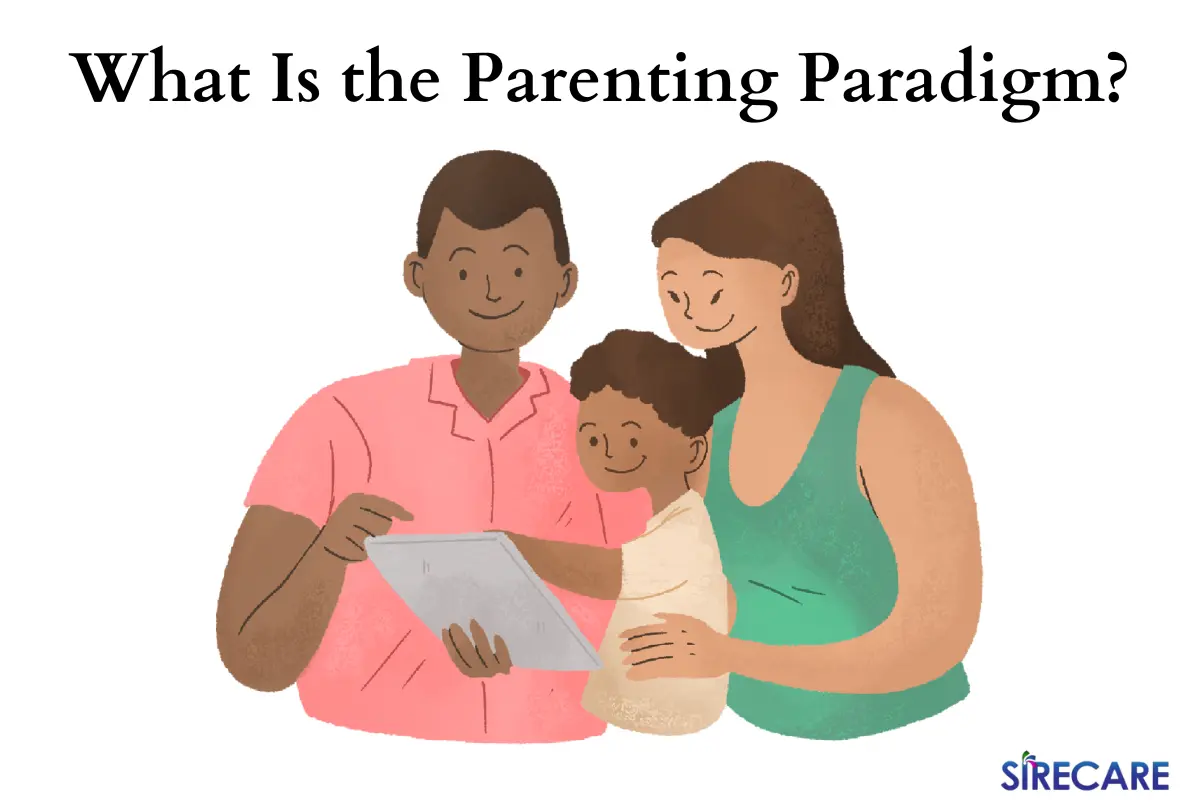As a parent, I’ve often found myself pondering the age-old question, “Do parents actually have all the answers?” It’s a thought that has likely crossed the minds of many others as they navigate the complex journey of raising children. The truth is, while parents may possess a wealth of knowledge and experience, they may not always have definitive solutions to every problem their child encounters.
In fact, challenging the status quo can lead to the discovery of new, innovative approaches to parenting, allowing both parents and children to grow and learn together. We will discuss the idea that parents don’t necessarily have all the answers, and discuss the importance of embracing alternative perspectives and being open to change.
Reasons It Seems Parents Have All the Answers
It’s no surprise that many of us grow up believing our parents have all the answers, given the role they play in our lives. Let’s take a closer look at some of the reasons behind this widespread perception.

1. Parents as Role Models
From the moment we’re born, our parents are our primary role models. We observe and learn from their behavior, attitudes, and values, which can lead to the belief that they possess all the necessary knowledge and skills to navigate life’s challenges.
2. Experience and Wisdom
Over time, parents accumulate a wealth of experience and wisdom, making it seem like they have an answer for every situation. This often stems from their own trial and error, as well as learning from the experiences of others.
3. Protective Instinct
Parents are naturally protective of their children, and this instinct can manifest in a strong desire to provide solutions and guidance. This may create the impression that they have all the answers, as they strive to make their child’s path as smooth and safe as possible.
4. Confidence and Authority
Parents often project an air of confidence and authority, which can reinforce the notion that they have all the answers. This is particularly true when they are providing guidance or discipline, as a sense of certainty can help to establish trust and respect from their children.
5. Cultural and Societal Expectations
Cultural and societal expectations can also contribute to the belief that parents have all the answers. In many cultures, parents are viewed as the ultimate authority figures, responsible for imparting knowledge, morals, and values to their children.
6. Parental Education and Resources
Parents often have access to a variety of educational resources and support networks that can help them address the challenges that arise during child-rearing. This access to information and support can reinforce the impression that parents have all the answers.
7. Familiarity with Their Child’s Needs
Parents are usually the ones who know their children best. They are familiar with their child’s unique personalities, needs, strengths, and weaknesses, and this knowledge enables them to provide tailored guidance and support, giving the impression that they possess all the necessary answers.
8. Parents as Problem Solvers
Throughout a child’s life, parents are often the first ones called upon to solve problems and provide guidance. As a result, children may grow up believing that their parents have all the answers, simply because they have been the go-to source of support for so long.
What Is the Parenting Paradigm?
The “parenting paradigm” refers to the collective beliefs, values, and practices that shape how parents approach their roles and responsibilities in raising children. The parenting paradigm is closely related to our main topic, as it encompasses the collective beliefs, values, and practices that shape how parents approach their roles and responsibilities in raising children.

This paradigm is influenced by various factors, such as culture, society, personal experiences, and even scientific research. Understanding the parenting paradigm can help us question whether parents truly have all the answers and consider alternative approaches to parenting.
Some common elements within the parenting paradigm that relate to our main topic include:
1. Parental Authority and Decision-Making
This aspect of the paradigm explores how parents exercise their authority and make decisions on behalf of their children. It raises questions about when parents should maintain their authority and when they should be open to alternative perspectives or allow their children to make their own choices.
2. Adaptability and Openness to Change
An important aspect of the parenting paradigm is the willingness to adapt and embrace change, which can result from new information, experiences, or societal shifts. This flexibility can lead to questioning traditional beliefs and practices, including whether parents truly have all the answers.
3. Encouraging Independence and Critical Thinking
The parenting paradigm also encompasses the balance between providing guidance and nurturing a child’s independence and critical thinking skills. This involves teaching children to question the status quo, which in turn can lead them to challenge their parents’ perceived authority or knowledge.
4. The Role of External Influences
External factors, such as education, peer relationships, and access to information, play a significant role in shaping a child’s beliefs and values. Understanding the impact of these influences can help parents recognize that their own knowledge and experience might not always be the sole source of guidance for their children.
The Limitations of Parental Knowledge
While parents play an undeniably important role in their children’s lives, it’s essential to recognize that there are limitations to their knowledge and understanding. Acknowledging these limitations can promote open-mindedness and encourage parents to seek alternative perspectives.

1. Evolving Societal Norms and Values
As societal norms and values change, parents may find themselves holding onto outdated beliefs or practices that may not be as effective or relevant in today’s world. Adapting to these changes and being open to new ideas can help parents better address the challenges that come with raising children in a rapidly evolving society.
2. Gaps in Knowledge
No parent can possess all the answers or expertise in every subject or field. There will always be gaps in their knowledge, which can limit their ability to provide guidance in certain areas. Recognizing these gaps can encourage parents to seek additional information or consult experts when needed.
3. Individual Differences in Children
Each child is unique, and what works for one child may not be effective for another. Relying solely on parental intuition or experience may not always yield the best results, as children can have diverse needs and circumstances. Understanding these individual differences can help parents recognize the value of seeking alternative approaches or perspectives.
4. Emotional Biases
Parents are only human, and emotional biases can sometimes cloud their judgment or decision-making. Recognizing these biases and being aware of how they may impact their ability to provide guidance is essential for making well-informed decisions for their children.
5. Technological Advancements
With the rapid pace of technological advancements, parents may struggle to keep up with the latest trends and developments, potentially limiting their ability to guide their children in these areas. Embracing ongoing learning and staying informed can help parents better navigate the challenges presented by a constantly evolving digital landscape.
The Value of Diverse Perspectives
Embracing diverse perspectives can be incredibly valuable for parents and children alike. It encourages open-mindedness, and critical thinking, and fosters an environment of growth and learning. Let’s explore some of the benefits that come from considering alternative viewpoints in parenting:

1. Holistic Problem-Solving
Incorporating diverse perspectives can lead to more well-rounded and effective solutions to the challenges that parents and children face. By considering multiple viewpoints, parents can better understand the nuances of a situation and make more informed decisions that take into account various factors.
2. Adaptability and Resilience
Exposure to diverse perspectives can help both parents and children become more adaptable and resilient in the face of change. Learning from others and considering new ideas can help them develop a broader understanding of the world and be better equipped to handle unexpected challenges and setbacks.
3. Empathy and Understanding
When parents and children engage with different viewpoints, they can develop a greater sense of empathy and understanding toward others. This fosters emotional intelligence, which is a crucial skill for navigating relationships and building strong connections in a diverse world.
4. Encouraging Independent Thinking
By demonstrating the value of diverse perspectives, parents can encourage their children to think independently and critically evaluate the information they encounter. This promotes intellectual curiosity and fosters a lifelong love of learning, empowering children to make well-informed decisions throughout their lives.
5. Breaking Stereotypes and Prejudices
Exposure to diverse perspectives can help challenge and break down stereotypes and prejudices that may limit personal growth or create barriers in relationships. And actively seeking out alternative viewpoints, parents can model open-mindedness and inclusivity for their children, fostering a more inclusive and accepting environment.
FAQs
How can parents become more open to diverse perspectives?
Parents can become more open to diverse perspectives by actively seeking out new information, engaging in conversations with individuals from different backgrounds, attending parenting workshops or seminars, and being willing to reevaluate their beliefs and practices when presented with new ideas or evidence.
Can seeking external help or advice undermine a parent’s authority?
Seeking external help or advice does not undermine a parent’s authority. In fact, acknowledging one’s limitations and being willing to learn from others demonstrates humility and wisdom, which can strengthen a parent’s credibility and enhance their decision-making abilities.
How can parents encourage their children to challenge the status quo?
Parents can encourage their children to challenge the status quo by fostering an environment that values critical thinking, open dialogue, and intellectual curiosity. This can include engaging in thought-provoking discussions, encouraging children to ask questions, and exposing them to diverse perspectives and experiences.
How can parents strike a balance between maintaining their authority and being open to alternative viewpoints?
Striking a balance between maintaining authority and being open to alternative viewpoints involves setting clear expectations and boundaries while also being receptive to feedback and new ideas. Parents can demonstrate that they are open to learning and adapting, while still providing the necessary structure and guidance that children need.
Are there any risks associated with challenging the status quo in parenting?
While challenging the status quo can lead to personal growth and improved parenting practices, it’s important to approach change with caution and critical thinking. Not every new idea or trend will be beneficial, so parents should carefully evaluate the potential impact of any changes they consider implementing in their parenting approach.
How can parents stay informed about new research or trends in parenting?
Parents can stay informed about new research or trends in parenting by regularly reading articles, books, and research studies on the subject. They can also join parenting forums, attend workshops or conferences, and connect with other parents or experts to exchange insights and experiences.
What does it mean to ‘have all the answers’?
The phrase “to have all the answers” implies that someone possesses complete knowledge, understanding, or expertise in a particular area or subject. In the context of parenting, it suggests that parents have all the necessary information, solutions, and insights to address every challenge or question that arises during the upbringing of their children.
However, as discussed earlier, parents do not necessarily have all the answers, and embracing diverse perspectives and continuous learning can lead to better parenting outcomes.
How do parents find the right information and guidance to support their parenting?
Parents can find the right information and guidance to support their parenting through various sources, such as books, articles, research studies, workshops, and seminars. Additionally, they can consult with professionals like pediatricians, psychologists, and educators, who can offer specialized advice based on their expertise.
But most parents consult their parents first, due to their wealth of experience, especially if they were well raised. Online parenting forums, social media groups, and support networks can also provide valuable insights and experiences from other parents facing similar challenges.
Are there any guidance programs available to help parents?
Yes, there are numerous guidance programs and resources available to assist parents. These programs can range from prenatal classes and parenting workshops to support groups and counseling services.
Last Note
The notion that parents have all the answers is an unrealistic expectation, as no single person can possess complete knowledge and expertise in every aspect of life. Embracing diverse perspectives and acknowledging the limitations of parental knowledge can lead to more effective, adaptive, and open-minded parenting.
By fostering an environment that values continuous learning and critical thinking, both parents and children can grow together, challenging the status quo and ultimately enhancing the parent-child relationship.

I am Christiana Williams, a multitasking sociologist and proud mama of three. With a passion for exploring the complexities of modern parenting, I bring my unique perspective and expertise to the table. As a seasoned parent and seasoned sociologist, I have a wealth of knowledge and experience to share. From the ups and downs of raising a family to the latest research on child development, I am on a mission to help other parents navigate the joys and challenges of parenthood. Get ready to be inspired, informed, and entertained as I share my insights and adventures as a parent.




